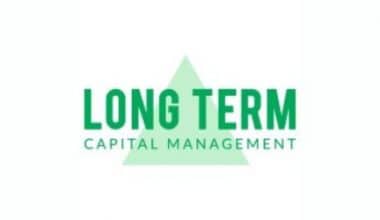Making private investments in public equity might seem like the right thing to do given its benefits. PIPE makes it possible for a public corporation to quickly issue investors with stock or securities to the public.
What Are Private Investments in Public Equity
A public firm can obtain alternative funding through a private placement of securities with an accredited investor by using private investments in public equity (PIPE). PIPE occurs when big private investments are made in publicly traded companies.
This typically occurs when equity valuations have decreases and the company is searching for new sources of funding. Under a securities purchase agreement, the issuer promises to register the shares, typically through a resale registration statement, within a certain number of days of the closing.
In this way a public company can gain additional access to the equity markets in express mode even though their shares are already publicly traded.
How Private Investments in Public Equity (PIPE) Work
A public company and an accredited investor make a PIPE deal. The securities are often either newly issued shares of common stock or current shares held by a selling shareholder. The investor agrees to buy a predetermined quantity of securities at a predetermined cost.
Following the execution of the purchase agreement, the issuer of the securities must submit a resale registration statement. This grants the investor the right to resell the shares to the general public.
A PIPE transaction closes as soon as the Securities and Exchange Commission (SEC) confirms that the resale registration statement is valid. At that point, the investor pays the issuing corporation for the securities.
Since the buyer bears the majority of the risk in PIPE transactions, the securities are sometimes issued at a modestly discounted price.
It’s crucial to remember that issuers typically cannot issue or deposit more than 20% of their existing stock in PIPE transactions without first receiving shareholder approval.
Who Can Invest In Private Investments Public Equity
#1. Accredited Investors.
A individual or organization must be an accredited investor in order to purchase securities that have not been registered with the Securities and Exchange Commission (SEC).
To consider them accredited investors ,they must adhere to strict income and net worth requirements.
Since making money requires capital, accredited investors have more chances than non-accredited ones. The reason for this is that the (SEC) permits businesses and private funds. This is to avoid registering specific investments so long as the businesses offer these assets to approved investors.
They permit the following for the investors
Direct investments into the profitable fields of private equity.
- Private placements
- Hedge funds,
- Venture capital,
- Equity crowdfunding
#2. Institutional Buyers.
An institutional buyer is a business or organization that manages investments on behalf of others. Examples of institutional buyers include
- Insurance firms,
- Mutual funds,
- Pension plans.
Institutional investors frequently buy and sell enormous quantities of stocks, bonds, or other securities. Retail investors frequently investigate institutional investors’ regulatory filings with the Stocks and Exchange Commission (SEC).
This is to ascertain which securities they should buy directly because institutional investors have the power to impact markets. To put it another way, some investors try to imitate institutional buyers’ purchases by adopting the same positions as the so-called “smart money.”
#3. Venture capital
Venture capital (VC) is a sort of private equity and financing provided by investors to start-up enterprises. They also provide financing for small businesses with the potential for long-term growth. Usually wealthy individuals, investment banks, and other financial organizations providen the majority of venture capital.
However, it is not always in the form of money; it can also come in the form of managerial or technological know-how.
Startups with outstanding growth potential often get venture capital. They can also be given or to businesses that have had rapid growth and seem well-positioned to keep growing.
Types of Securities sold in PIPE Transactions
#1. Common stock
Common stock is a type of security that denotes ownership in a company. The common stockholders chooses the board of directors and corporate policies.
Long term, this type of stock ownership often produces higher rates of return. Common stock can act as securities during private investments in public equity
#2. Convertible preferred stock
Convertible preferred stocks are shares with an option for conversion into a specific number of common shares at a later time. The majority of convertible preferred stock is swapped at the shareholder’s desire.
But occasionally there is a clause that enables the business, or issuer, to force the conversion. In the end, the performance of the common stock determines the value of a convertible preferred stock.
#3. Convertible Debt
A company with convertible debt can borrow money from a lender or investor. However this with the understanding that both parties will eventually repay the loan in full (or in part) .
This is by exchanging it for a specific number of the company’s preferred or common shares. The agreement outlines the parameters of repayment and conversion. They include the duration, price per share, and interest rate that will be paid until either conversion or maturation.
#4. Warrants
A warrant is a type of security that gives the holder the right to buy or sell stock.
Similar to options, warrants are contractual financial instruments that give the holder exclusive rights to purchase stocks. Both are arbitrary and have time limits. They are different primarily by the fact that only certain approved institutions—typically the company on which the warrant is based—are permitted to issue warrants, as well as by some technical characteristics of their trading and exercise.
Warrants are typically affixed to bonds or preferred shares, enabling the issuer to reduce dividends or interest payments. They can utilize it to raise the bond’s yield and increase making them more appealing to prospective purchasers. You can also employ warrants in private equity transactions.
Benefit of Private Investments in Public Equity
In a PIPE transaction, securities are typically sold at a little discount to market value. This makes the purchase more affordable for the investor.
There is less paperwork in PIPE transaction. This is because SEC do not register the securities as usual as PIPE transaction is a private placement.
It reduces transaction expenses for the issuer. The minimal public disclosure obligations result in lower firm overhead, which aids in cost-cutting.
Issuers can benefit from private investments in public equity. Long-term sales of substantial shares to qualified buyers ensure that the company will have the money it needs.
For small-to-medium-sized public companies that might find it difficult to get more conventional types of equity funding, PIPEs can be very helpful.
Disadvantages of Private Investments in Public Equity
Private investments in public equity is only available to accredited investors and that is one of its disadvantages. This means that most investors are not eligible to engage in PIPE transactions because they are only open to authorized investors.
In some situations, businesses issue new common stock for PIPE transactions, diluting the shares of current stockholders. A PIPE transaction requires shareholder approval before the company may issue more than 20% of its outstanding stock. The company may find this to be more burdensome, and the shareholders may decide not to approve.
It diminshes he value of owners’ capital by this new share issuance, which could result in a decline in stock price. Investors might sell their stock quickly, which would lower the market price. The business might have to issue more stock at a considerably discounted price if the market price falls below a certain level.
By continually selling their shares and driving down the share price, short sellers might take advantage of the scenario and give PIPE investors a majority stake in the company.
Can You Privately Invest in a Public Company?
By purchasing shares of the company’s stock, investors might turn into shareholders in a public corporation. The corporation is public since any interested investor can buy shares on the public exchange to acquire equity ownership.
Can Private Equity Be Public?
Private equity refers to investment in companies or funds that are not publicly traded.
As the name implies, many people think of private equity (PE) firms as always being privately held. they can be bought and sold like any other stock on public stock exchanges (BX).
The number of businesses choosing to go public and offer stocks on public exchanges has surged in recent years.
Private and Public Investments
Public investment is the requirement to supply specific products, infrastructure, or services that are of critical national interest. As a result of industrialization and the ensuing need for additional infrastructure to support the expansion of urban areas, public investment has tended to rise.
For instance, the amount of money that a government spends on public services like health and education:
What Is the Difference Between Private and Public Equities?
Private equity is to as the total assets or securities that represent an individual’s or an organization’s ownership interest in a private company. In this case they do not inform The public of the financial details pertaining to the stocks and shares that make up the ownership structure.
Public equity is a type of investment that enables people and organizations to purchase shares of public companies and join the ownership group.
It ensures that Governmental organizations that control the public equities market are to report their financial information regarding their stocks and assets on a regular basis for compliance reasons. It indicates that the public can see information about a company’s finances, income, and other aspects of how it runs.
What Is an Example of Public Equity?
A public equity investment could include purchasing individual stocks. In addition to providing exposure to public equity, mutual funds and exchange-traded funds also provide some built-in diversification because it disperses ownership across several businesses or industries.
What Is the Private Investment?
The purchase of a capital asset with the expectation that it would generate income, increase in value, or both generate and increase in value is private investment.
A capital asset is a piece of real estate that is difficult to sell and is usually an investor that buys it to assist them make a profit. Land, buildings, equipment, and machinery are a few examples of capital assets
Conclusion
When a public firm sells some of its shares directly to private investors rather than the broader public through a securities exchange, this is a private investment in public equity (PIPE deal). PIPEs, in the context of private equity, refer to investments made in publicly traded companies by private equity funds. Typically, the investments come in the form of discounted preferred stock.
FAQs
Can individuals invest in PIPE?
Only authorized investors are permitted to participate in a PIPE transaction because it is a type of private placement. Unfortunately, this means that the majority of private investors won’t be eligible.
what is private equity
Investment partnerships that acquire and run businesses before selling them are known as private equity. These investment funds are managed by private equity firms on behalf of accredited and institutional investors.
Private equity firms may invest in such buyouts as a consortium or may fully acquire private or public enterprises. They often don’t own shares in businesses that are still publicly traded.
What is IPO
An initial public offering (IPO) is the procedure of releasing fresh shares of stock to the public for the first time in a private firm. A corporation can raise equity funding from the general public through an IPO.
Since there is often a share premium for present private investors, the transition from a private to a public firm can be a crucial period for private investors to completely realize rewards from their investment. Additionally, it enables public investors to take part in the sale.
{
“@context”: “https://schema.org”,
“@type”: “FAQPage”,
“mainEntity”: [
{
“@type”: “Question”,
“name”: “Can individuals invest in PIPE?”,
“acceptedAnswer”: {
“@type”: “Answer”,
“text”: “
Only authorized investors are permitted to participate in a PIPE transaction because it is a type of private placement. Unfortunately, this means that the majority of private investors won’t be eligible.
“
}
}
, {
“@type”: “Question”,
“name”: “what is private equity”,
“acceptedAnswer”: {
“@type”: “Answer”,
“text”: “
Investment partnerships that acquire and run businesses before selling them are known as private equity. These investment funds are managed by private equity firms on behalf of accredited and institutional investors.
Private equity firms may invest in such buyouts as a consortium or may fully acquire private or public enterprises. They often don’t own shares in businesses that are still publicly traded.
“
}
}
, {
“@type”: “Question”,
“name”: “What is IPO”,
“acceptedAnswer”: {
“@type”: “Answer”,
“text”: “
An initial public offering (IPO) is the procedure of releasing fresh shares of stock to the public for the first time in a private firm. A corporation can raise equity funding from the general public through an IPO.
Since there is often a share premium for present private investors, the transition from a private to a public firm can be a crucial period for private investors to completely realize rewards from their investment. Additionally, it enables public investors to take part in the sale.
“
}
}
]
}
References
- Sewer Inspection: Video Costs, Lateral Inspection (+ overview of best Inspection company)
- GAAP: Overview, Importance, History, Limitations
- Sewer Scope: Inspections, Costs & How to detect Scams
- COMPANY INFORMATION: How to Find & Update Company Info in 2023
- PRIVATE INVESTMENT: How To Start On The Right Foot With The Best Private investments Option
- SPY HOLDINGS: Meaning, Top Holdings, ETF & by Weight






